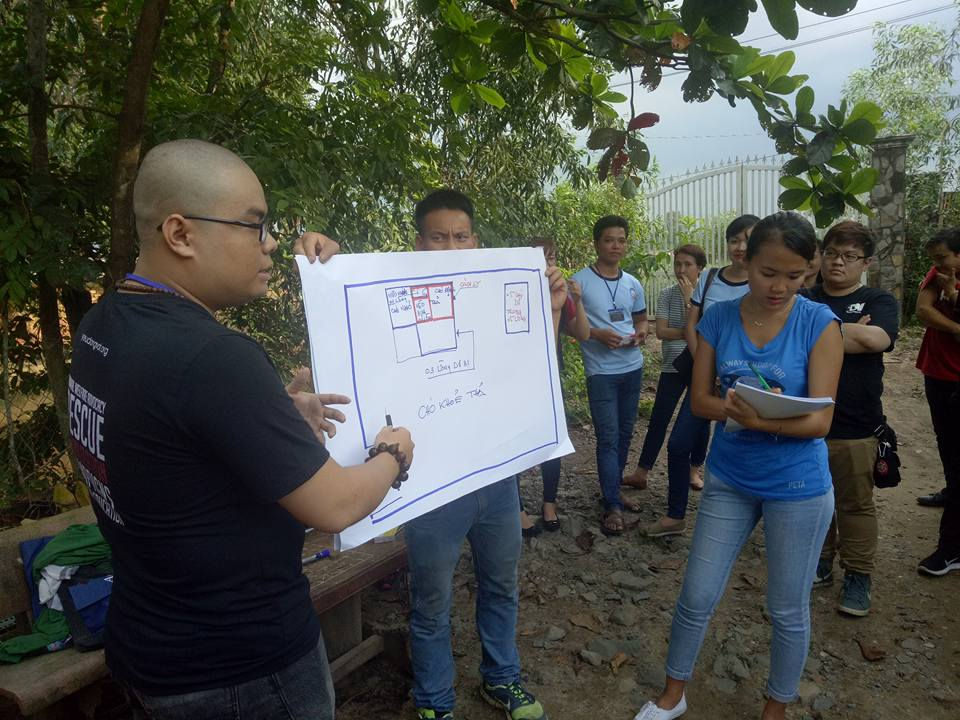Building Capacity and Uniting forces to Support Vietnam’s Growing Animal Welfare Movement
Earlier this month, the Asia Canine Protection Alliance (ACPA) hosted a first-of-its “Shelter Management” workshops in Ho Chi Minh City, Vietnam, offering practical support to the growing animal protection and rescue groups operating throughout the country.
Despite a weak legal framework under which animal rescuers’ can work, the animal rights movement is growing rapidly in Vietnam. Rising pet ownership has prompted growing awareness of animal welfare issues, particularly the brutal dog meat trade.
“Vietnam ranks second only to China in the number of dogs slaughtered for human consumption each year, and in recent years many groups have been established calling for an end to the dog meat trade and the development of aniaml protection laws. Social development and care for human lives go hand in hand with improving animal welfare, and is the crucial trend for any civilized nation. What all the animal welfare groups in Vietnam want and need is to be skill-trained, approved and supported legally by authorities,” explains Vi Thao Nguyen, Humane Society International’s Vietnam Director.








Founded in 2013 by Change For Animals Foundation, Humane Society International, Animals Asia and Soi Dog Foundation, ACPA is committed to tackling the largely unchallenged dog meat trade for human consumption in Vietnam. It’s a trade that not only causes immense animal suffering for the estimated 5 million dogs a year, but also causes societal unrest with unscrupulous traders stealing pets, and jeopardizes Vietnam’s pledge to eliminate rabies by 2020.
Lola Webber, Programmes Director at Change For Animals Foundation, explained: “Rabies and other communicable diseases, such as cholera and trichinellosis, represent a major public health threat throughout Asia, and have been directly linked to the trade in dogs destined for human consujmption. An end to the trade is needed to protect human health and to save the lives of countless dogs – many of which are stolen pets - who suffer unimaginable cruelty.”
At an earlier ACPA-hosted conference in 2013 in Hanoi, concerned about the spread of rabies, officials from Thailand, Cambodia, Laos and Vietnam agreed to a five-year moratorium on the commercial transport of dogs from one country to another to end the inhumane trade in dogs for meat.
With the participation of 11 animal protection and sheltering groups from throughout Vietnam, the Alliance provided practical training on how to ensure optimal care for animals after rescuing.
“Animal welfare groups in Vietnam provide shelter for the victims of cruelty and neglect and are tasked with caring for their physical and psychological needs. Many of these animals are sick, injured and traumatized by their experience and shelters need tools, training, and resources to help these victims regain their health and well being”. Adam Parascandola, Director, Animal Protection and Crisis Response for Humane Society International.
“The workshop was a monumental step forward for dogs and cats in Vietnam. It was the first ever meeting between animal welfare groups trying to provide better shelter and care to homeless and neglected animals. The overall atmosphere was positive and collaborative, and we hope to host a follow-up training session later this year,” continued Dr. Katherine Polak, International Animal Welfare Director for Soi Dog Foundation.
As rescue operations continue despite weak laws to safeguard animals from cruelty, ACPA is committed to continuing to lobby for the strengthening of laws and to provide a framework under which animal protection groups can work more effectively.
Tuan Bendixsen, Animals Asia Vietnam director said:
“Although Vietnam's Veterinary Law was enacted in July 2016 and contains provision to give animals some protection, it is too general. It effectively falls short of giving animals any rights and there continues to be no legal punishment for animal cruelty. As a group we continue to lobby for that to include what is required to fully protect animals. In addition, there are too many legal barriers faced by activists who want to help animals. As an example, groups often find it hard to become officially recognised if they want to set up as a dog rescue operation. We talk about making laws fit for purpose and that is vital but we also need laws that will assist the movement towards better assistance and protection for all animals in Vietnam. Specifically – as an example - we need a legal and physical infrastructure so that the dog meat trade can be challenged and there are groups that can help the dogs and there are the facilities to do so.”
